When I first began learning music production, not only did I not know ANYTHING about songwriting or production, but I didn't even know how to play an instrument or ANY music theory.
I got my start by sitting a MIDI keyboard and just hitting random keys until I struck on something that I thought sounded good. I also couldn't get any of my instruments to be in-time with one another. It was a mess!
But, over time, I progressed. Here is one of my songs:
So, can you learn music production on your own?
You can absolutely learn music production on your own. In fact, there has never been a better time than now to learn how to become a music producer. You just have to learn the key skills of songwriting, recording, mixing, and mastering, all of which you can learn with the right resources.
I did eventually apprentice under a master who owns his own commercial recording studio, and that helped me to rapidly progress.
But you still can learn everything you need on your own. Here's how...
How to Learn Music Production On Your Own
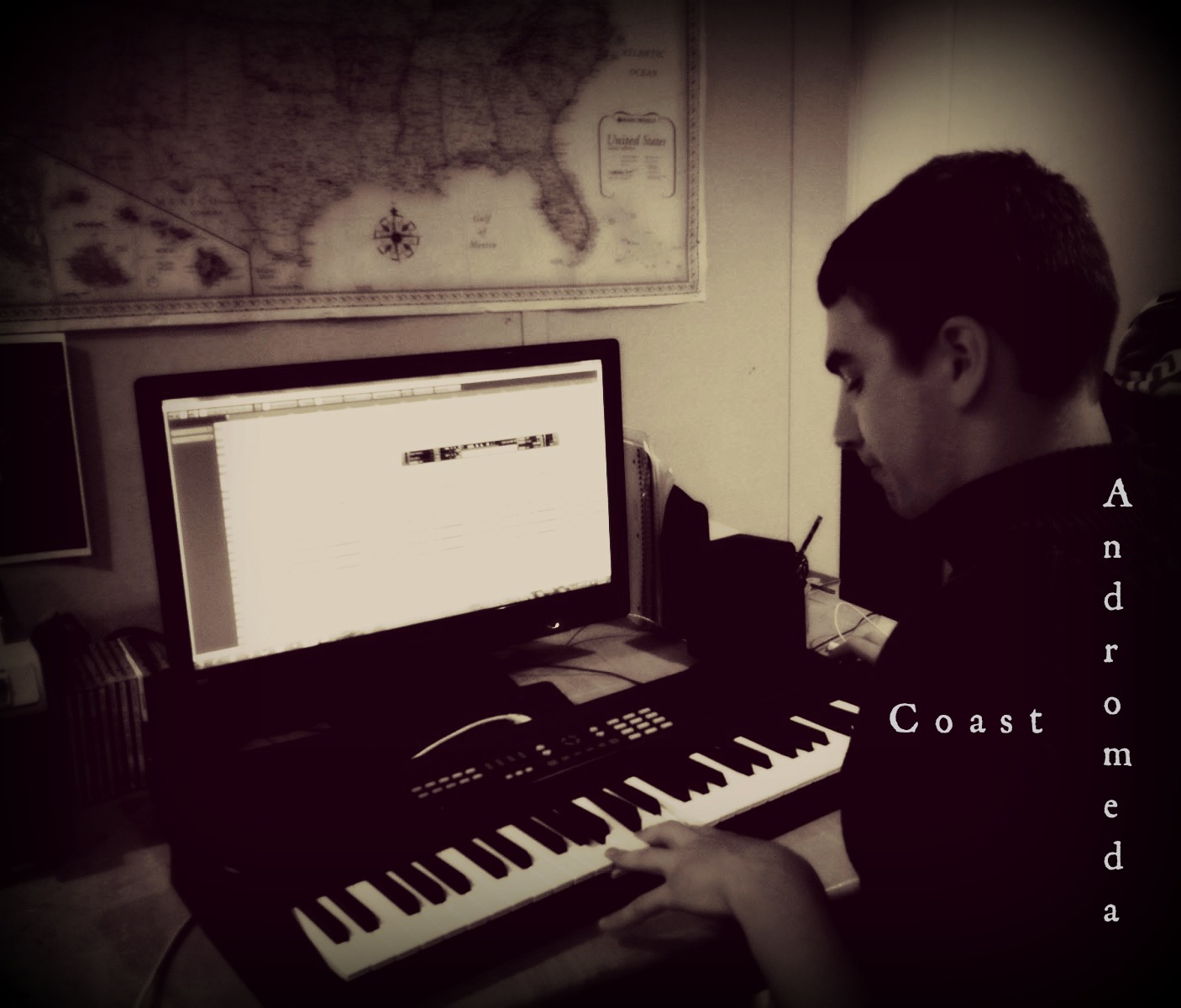
You just need three things to learn music production on your own. You need to get the right:
- Tools
- Knowledge
- Experience
And that's it! Not only that, but you only need a couple of tools and only some basic knowledge to get started.
Where you are going to see the most growth is from simply putting in the time and gaining experience through producing music.
What Tools Do You Need To Get Started With Music Production?
You don't need a lot of fancy equipment to start learning how to produce music, but you do need a few things.
1. DAW (Digital Audio Workstation):
First you'll need some music production software. This is known in the industry as a "DAW" or "Digital Audio Workstation.
This will allow you to do everything you need to do in order to make a track, such as recording, aligning tracks, editing, and so on.
You can start with something free like Garageband for Mac, or the light/free version of other DAWs for the PC. I got started with Cubase Elements.
2. Headphones
Next you'll want some headphones so you can actually hear your music.
The best headphones for beginners when it comes to music production are the Audio-Technica ATH-M50x Headphones.
3. Something To Record With: (Mic/Interface and/or MIDI Keyboard)
This is actually kind of an optional tool. If you're just planning on making beats or instrumental music, then you don't need a mic or audio interface to record.
You may just want to grab a MIDI Keyboard so you can play the notes you want to record. Even if you can't play an instrument, this is helpful.
I recommend the iRig Keys by IKMultimedia.
What do you need to know to become a music producer?
Next you're going to need to learn some basic concepts in order to actually get started producing music.
1. Learn Your DAW
This is the first step, and don't worry, it's actually easier than it looks or may sound.
There are a ton of tutorials on YouTube that can teach you just about everything you need to know about you DAW. So I suggest in investing a little bit of time up front to learn your DAW. But don't go overboard.
There are WAY more features inside of DAWs than you need to know in the beginning. I'm still learning things about my DAW, Logic Pro X, to this day.
2. The Music Production Process
Now that you have your tools and a basic understanding of your DAW, you now need to invest some time in learning the music production process.
This involves the four steps of creating a song which are:
- 1Songwriting
- 2Recording
- 3Mixing
- 4Mastering
Once you learn your DAW and the music production process, the only thing standing between you and becoming a great producer is practice.
Alright, now let's jump in to how you can quickly learn each stage of the music production process...
Learn How To Write Songs
Song structure is going to vary based on your genre, so I suggest studying some of your favorite songs, and trying to make a song like it that follows the same song structure (how many choruses/verses and in what order), and even uses the same chord progressions.
Decide How To Start:
The fastest way to learn is simply to copy what you know works, and then you can branch off from there when you go to create your own original music.
Or if you don't want to do that, then check out my video below on 9 different ways to start a song:
Less is more when it comes to arrangement
When I first got started producing music, I thought it was fun to see how many different instruments/parts I could cram into one song.
But when you look at some of the best songs, you realize that less is more. A lot of the best songs are actually pretty simple. Only need a few elements:
Basic Music Theory Helps
Learning music theory helps, but it's certainly not necessary. You can use a tool like AutoChords.com to help you create chord progressions.
Or simply google the chord progressions of songs you like, and then look up what are all the notes in that particular key.
This is how I got started.
If you're wanting to upgrade your skills though, then picking up a book like Computer Theory For Computer Musicians is a good idea.
However, even if you don't know music theory, you can still create great songs. After all, music theory is just a way to describe what has already been written.
Check out my video below which will give you some tips for how to create music even if you don't know music theory or how to play an instrument.
Otherwise, if you're wanting more help with knowing what elements you need to write a great song, then grab my free hit-song checklist below.
This checklist breaks down the 9 key elements that all the hit songs tend to have in common.
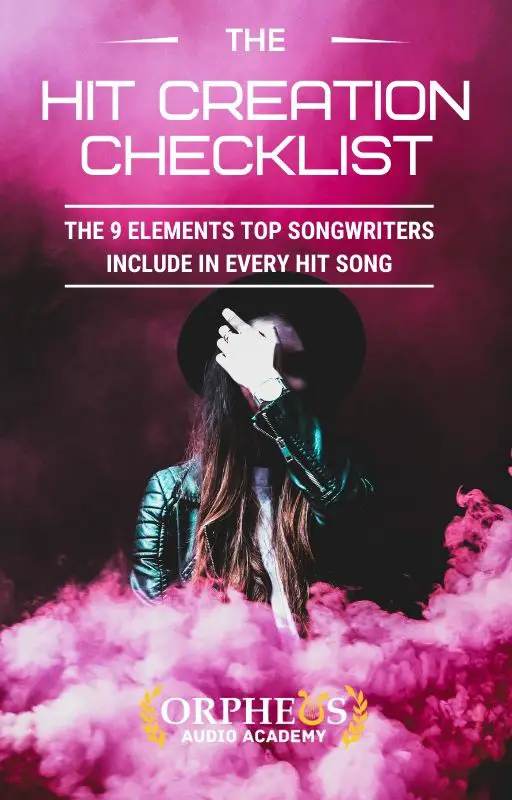
Write A Hit Song!
Click below to download my free Hit Creation checklist which demystifies the songwriting process and boils down the techniques hit songwriters use into a simple 9-step formula.
Learn How To Record
The next step is to learn how to record.
Again, if you are just making instrumental music, then there isn't much to learn here. Just hit the red record button inside your DAW with your MIDI keyboard hooked up, and you're good to go.
However, if you are going to be recording vocals or other instruments, then you'll need the tools to record, and you'll also need to learn the best practices for recording.
Some of the things you'll need to have/learn are:
- Audio Interface
- Microphone(s)
- Acoustic Treatment
- Microphone Placement
Audio Interface & Mic
At the very least, to record, you'll need a microphone and an audio interface.
An audio interface is what you'll plug your microphone into, and then the interface will plug into your computer.
You get much better audio when using an interface than plugging directly into your computer via USB.
Here are the beginner interface and Mic I recommend:
Acoustic Treatment
You're also going to want some acoustic treatment before you record vocals or an instrument.
Acoustic treatment is when you put materials in your room to help decrease how much "reflection" or echo is in your room, as this can lead to a poor-sounding recording.
You can simply pile up pillows or throw a blanket over your head when you record, or you could put foam on your walls, but that's a very involved process with many considerations that need to be taken into account.
A nice half-way point would be getting some kind of shield just for your mic, such as what I use, which is the Alctron PF8.
Microphone Placement
Next you need to learn mic placement. This is vital for getting professional-sounding recordings.
Every instrument has different "sweet spots" where you can place mics to get the best sound.
You can check out my video below which goes into more detail on how to place a mic for recording a vocal.
Learn How To Mix
The third part of the song-creation process is learning how to mix. This is where you take all of the tracks you recorded and making them sound the way you want.
This involves editing, adjusting tracks, and adding effects.
Mixing involves:
- adjusting the volume of your tracks
- Editing tracks to remove noise or other distracting elements
- Panning tracks left and right in the stereo spectrum
- Saturation (adding pleasant distortion or coloration to your tracks)
- Equalization (boosting and/or cutting different frequencies in your tracks)
- Compression (controlling the dynamics of your tracks: turning down loud sounds or turning up quiet sounds)
- Adding reverb (space to your sounds to make them sound like they are in a certain room)
- Adding delay (basically echo)
- And more
You'll need to learn not only what all of these steps are for, and how to implement them, but also how to use the tools that accomplish these effects.
You'll also need to become a critical listener so that you can hear what's working and what isn't working in your mix.
If you want a mixing checklist for how to mix a song, step-by-step, you can grab my free checklist below.
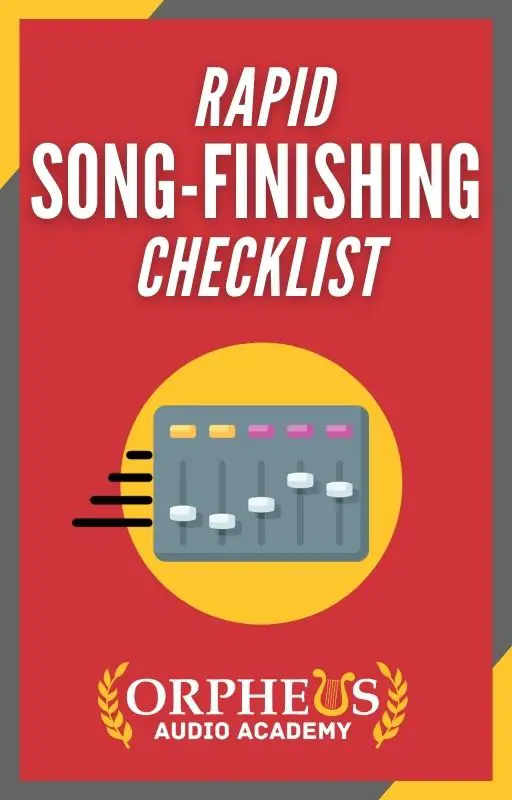
Create Better Songs, Faster
Click below to download my free song-finishing checklist to help you create radio-ready songs without taking months to complete them.
Learn How To Master
The final step in the process is mastering. This is where you combine all of your tracks into one final stereo mix track, and then treat that final track to get it up to commercial standards when it comes to loudness and frequency content.
This also involves potentially adding saturation, equalization, compression, but also may involve image widening and limiting.
Image widening allows the song to sound bigger and wider in the stereo spectrum, whereas limiting is what allow you to set the peak loudness of your song.
Mastering is tricky because it involves VERY critical listening and knowing what is missing from your track in order to make it professional-quality.
For this reason, a lot of artists opt to have someone else, with an unbiased ear, master their music for them.
However, you absolutely can master your own music if you want, and there are some great all-in-one mastering tools out there to help you get started, such as iZotope's Ozone 9.
Is It Hard To Learn Music Production?
Wow! That is a lot stuff to learn, from tools to concepts to even improving the way you listen.
With all of that in mind, is it hard to learn music production?
It is hard to learn music production in the sense that there are a lot of concepts to learn, but if you enjoy making music, then it's really not hard at all. It's a joy!
When I first got started, I became addicted to creating music, and found myself doing it even when I was supposed to be working on other "more productive" tasks.
For a good two years I just created a TON of AWFUL music which wasn't even in time, let alone arranged or mixed well. But I never got frustrated because I just thought it was some kind of magic that I was able to create music from a computer without knowing how to play an instrument or music theory.
However, there is one concept you should be aware of when setting out on the journey to learn music production: the Dunning-Kruger Effect.
The Dunning-Kruger Effect
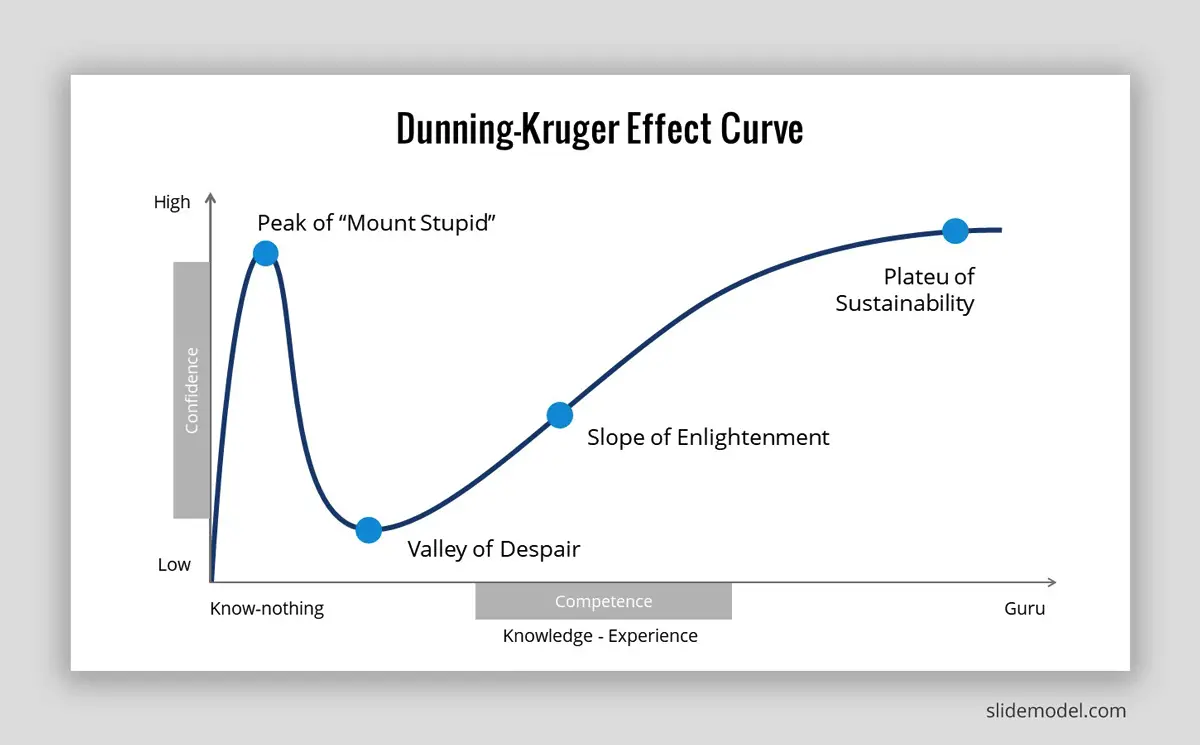
In case you don't know...
The Dunning–Kruger effect is a hypothetical cognitive bias stating that people with low ability at a task overestimate their ability.
I definitely experienced this myself.
When I first got started, I thought my music was awesome! So strange it was that no one else thought so.
Then, the more I learned, the more I realized I didn't know, and I fell into the "Valley of Despair", even know I was actually probably competent.
Now I'd say I'm somewhere on the "Slope of Enlightenment". I know enough, and I'm not depressed, but I'm far from a "Guru" and have a lot to improve on.
So if you start producing music and get to the point where you think your music is terrible, just realize this is normal, and it's probably not as bad as you think.
How Long Does It take To Learn Music Production?
Forever? There is really always more to learn, especially as technology keeps changing, but that's not a very helpful answer.
How fast you learn music production really just depends on how much time and intentional practice you put in.
With all the right elements in place, along with commitment, you can learn music production in just one month like this person did.
The Fastest Way To Teach Yourself Music Production
With all of that in mind, what is the fastest way to teach yourself music production?
Well, it comes down to these three steps:
- Get committed (schedule time for producing and learning)
- Get intentional (practice specific things)
- Get a mentor
Get Committed
Getting committed means scheduling in time for producing and learning, and sticking to it.
You'll learn more with each new song or session you complete, and if have a consistent time to work on music production and watching tutorials, you'll advance very rapidly.
Get Intentional
But just throwing a lot of time at music production isn't enough, sadly.
I spent hours and hours in my basement creating tracks without progressing very much because I never spent intentional time to learn or improve at anything.
It was a year before I learned how to "quantize" and actually get all my tracks to be in time with one another. I could have solved this much sooner if I had just set aside intentional time to Google my problem and then apply the solution.
You'll want to get intentional too. Figure out where you're weak, and set aside some time to learn and then practice improving that skill.
For example, if you struggle with knowing just what the heck is compression, and how to use it, then schedule some time to watch some tutorials, and then actually PRACTICE.
Practice using different compressors and different settings. What happens if you crank the threshold up, or the ratio? Actually see what it does to the sound you gain first hand experience.
Get A Mentor
Finally, the ultimate best way to learn music production fast is getting a mentor. I know, this isn't the same as learning music production on your own. But you only really have two choices when it comes to learning music production.
- 1You can learn on your own, slowly, or
- 2You can learn with a mentor, quickly
If you can find someone near you that you can learn from that's great, but if that isn't feasible, then find someone online you can learn from.
There are plenty of free tutorials you can learn from, but you're going to get your fastest results from buying a course or a few courses.
After five years on my own, I finally found a mentor, and paid over $8,000 to learn from him and even get a degree in audio engineering.
Now, you certainly don't have to go to college, in fact, I would advise against it. While I may have technically went to a trade school for audio engineering, it was actually WAY more than that, as I got to directly learn from a professional engineer/producer who owns his own commercial studio.
I got to record real bands, and mix and master real songs. This experience enabled me to rapidly speed up my growth.
So find your mentor, and that can even be me!
Feel free to email me any questions you have and I'll do my best to answer you through email, or in a future video or article tutorial.
You can email me by scrolling to the bottom of my About page here.
Also, don't forget to grab my free mixing checklist below.

Create Better Songs, Faster
Click below to download my free song-finishing checklist to help you create radio-ready songs without taking months to complete them.
I hope you found this post on can I learn music production on my own, helpful!
If so, feel free to share, and let me know in the comments below...

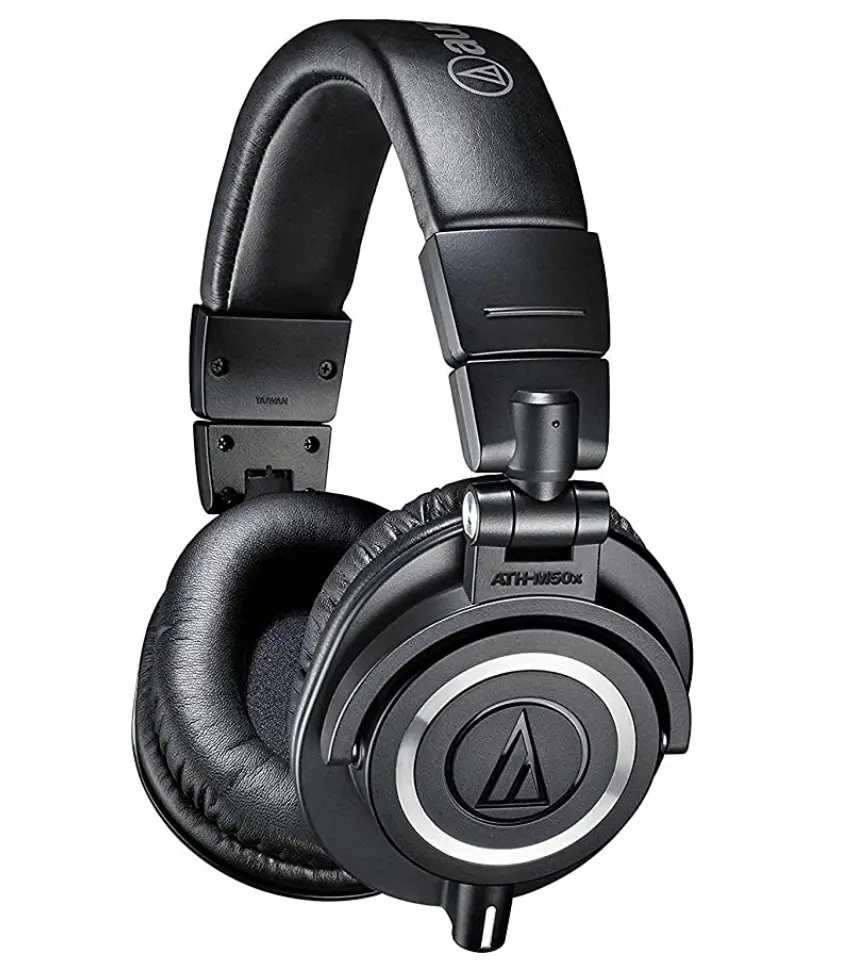

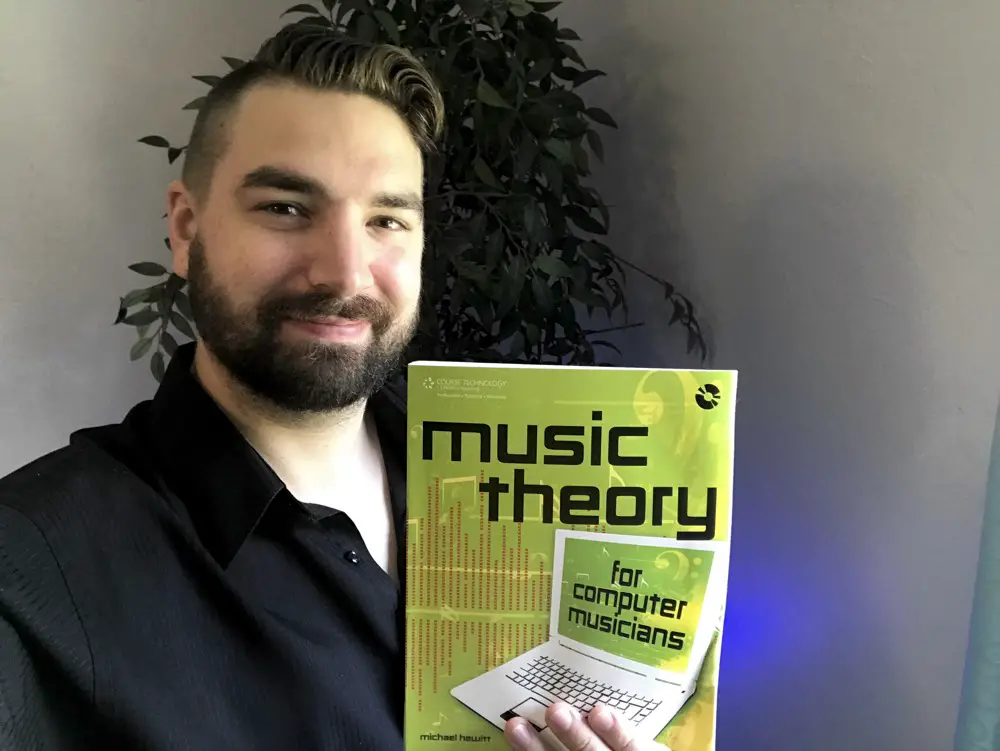
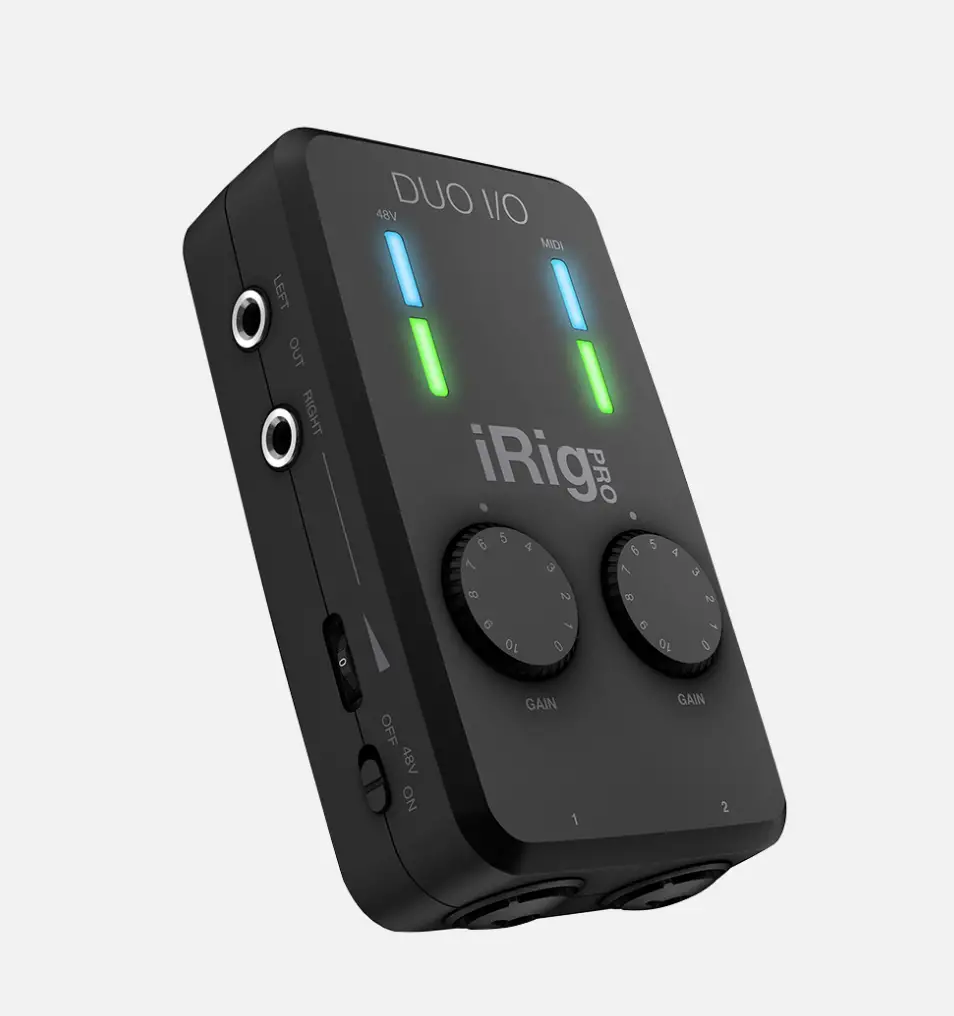
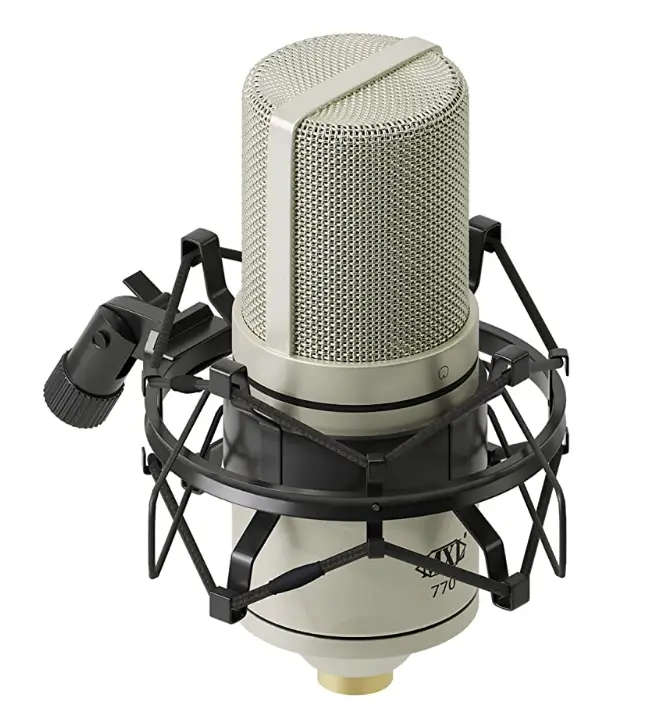
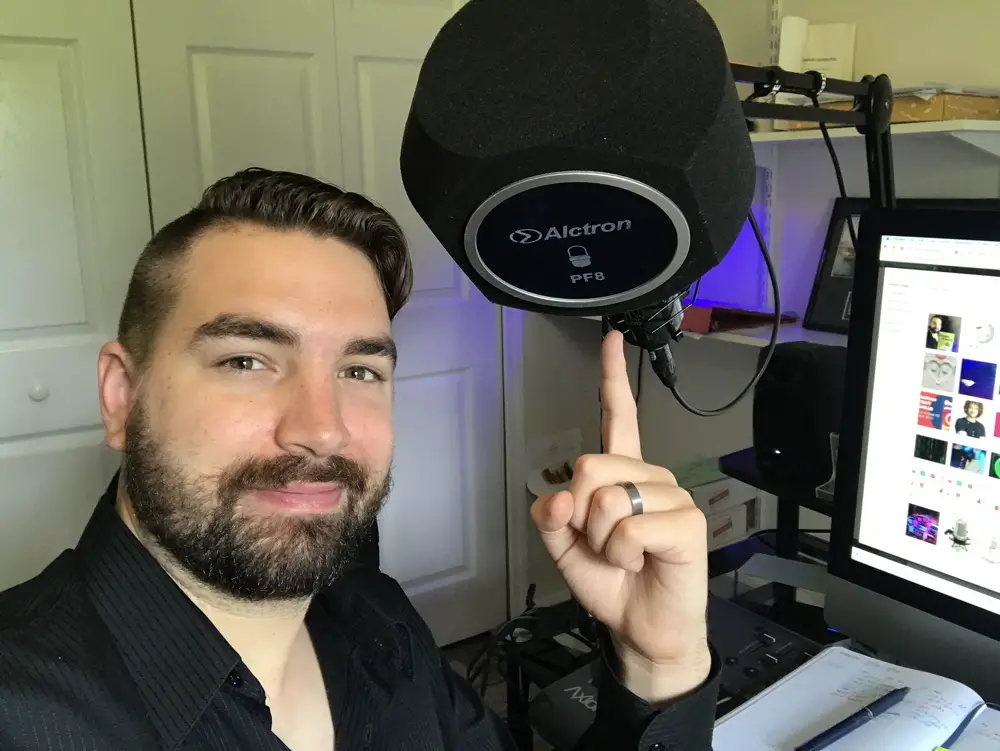
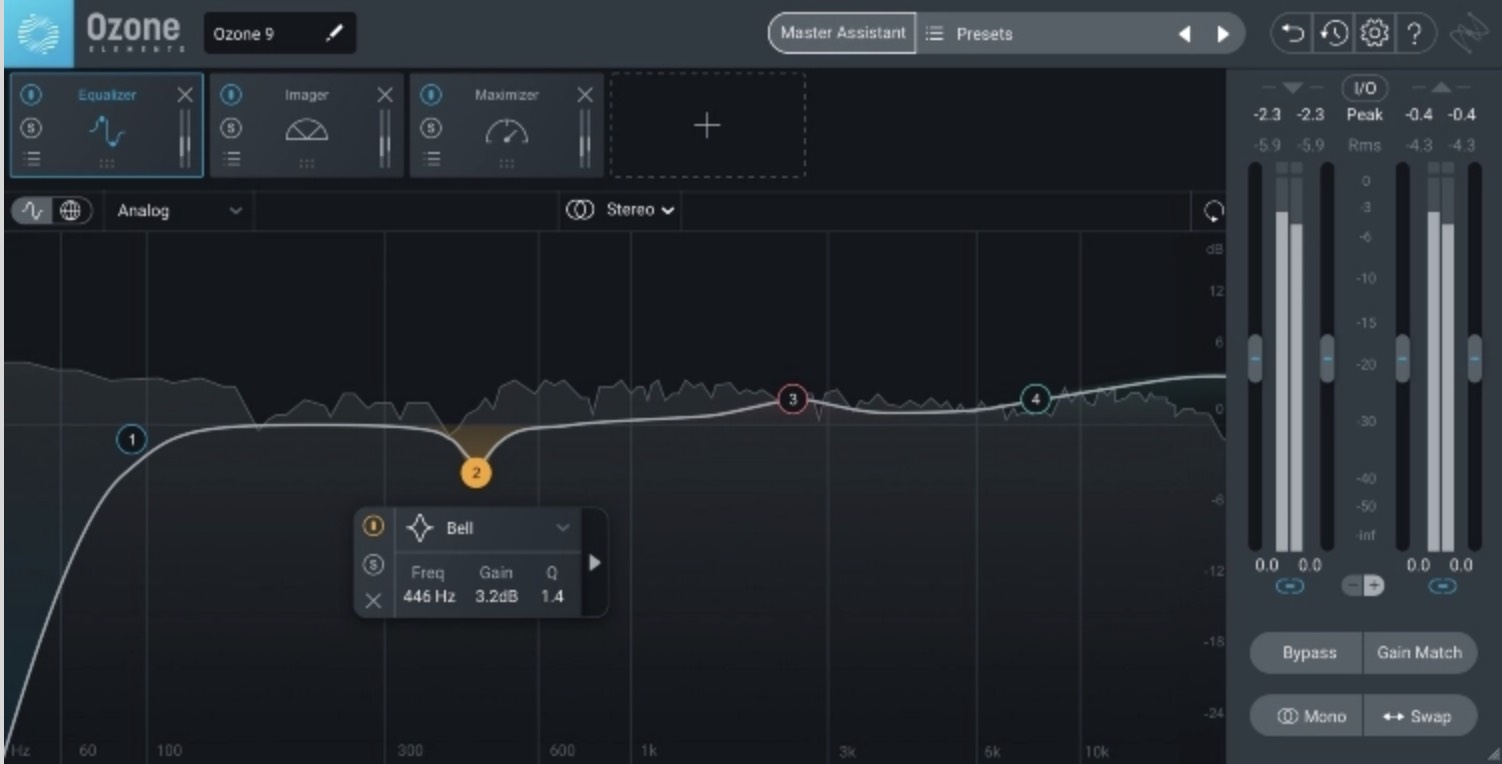
Good stuff! thank you for sharing!
You're very welcome!
Hi Reagan,
This is a great article! Especially loved the ‘less is more when it comes to arrangement’ bit. Minimalism FTW!
Also, you’ve merged the psychological aspects with Music Production so well. It is something that is definitely appealing to me.
Kudos!
Hi Yash,
Glad the article was helpful! What genre of music do you make?
Hey Reagan!
I'm more inclined towards Engineering and Sound Design but if I had to choose, it would be Neo-Soul and Metal. How about you?
Hi Yash,
That's pretty cool! And those two genres seem like they would be quite different from each other!
I like to make Synthpop and Synthwave.
I love this I am blessed with this article
How happy and awesome will it be to have Reagan ramm as my mentor